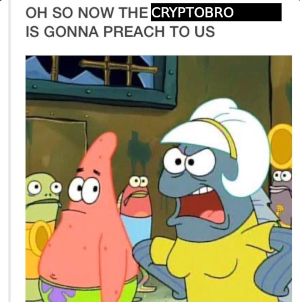Is because communists seek consensus, not just majority.
Voting in liberalism (the ideology of capitalism) is like everything else you experience in capitalism; it's alienating and alienated.
We'll focus on the alienated part. The liberal vote goes like this: here's the question, you can answer yes or no, knock yourself out.
They don't care about anything else. They don't care if you're educated or not about the question, or the reasons you might have to be voting one way or the other. All they care about is the box checked on the ballot, and then whichever option gets the most votes, even if it's one single extra vote, wins.
The communist vote goes like that: here's the question, why do you want to vote yes or no?
We build consensus. Build is the keyword here: consensus is not reached by random luck or letting enough time pass, it's a conscious effort that you have to make.
We educate people about the question and their choices, we try to understand why they lean one way or the other, and then we talk with them to give them all the facts they need to make an informed decision.
It's something we naturally started doing on ProleWiki, we try to reach a consensus for most decisions (the most common ones being account requests). If someone votes no, we want to know their arguments for it, and that's why most account requests end up with a pure 9-0 result or similar; we talk and convince people to reach one decision or the other. We motivate our own decisions as well; whether you vote yes or no, you're encouraged to explain why -- votes are not yet anonymous in our case.
But there is debate happening, which is healthy and helps reach a better solution.
It's also what Cuba did for their new constitution. The way these votes happen in liberal democracies is, again, they give you the question, they give you the changes that would happen, and they ask you yes or no and that's it. The way Cuba did it was to first talk with communities and their citizens, before any vote even took place. Then they refined a proposal based on these discussions, submit drafts for auditing by the population, and then finally the vote happened.

